Are pigs easy to take care of? Well, it depends! Whether you’re thinking about raising pigs on a farm or keeping one as a pet, there’s a lot to know. Pigs can be fun and friendly, but they also need plenty of space, food, and care.
Different breeds have different temperaments, so some might be easier to handle than others. We’ll look at what it takes to care for pigs, including how much space they need, the cost of feeding them, keeping them healthy, and the daily chores involved. Let’s dive in and see if pigs are the right fit for you!
Contents
- Rooting
- Wallowing
- Nesting
- Intelligence
- Social Needs
- Health Concerns
- General Needs of Pigs
- Cost of Feed
- Are Pigs Good Pets?
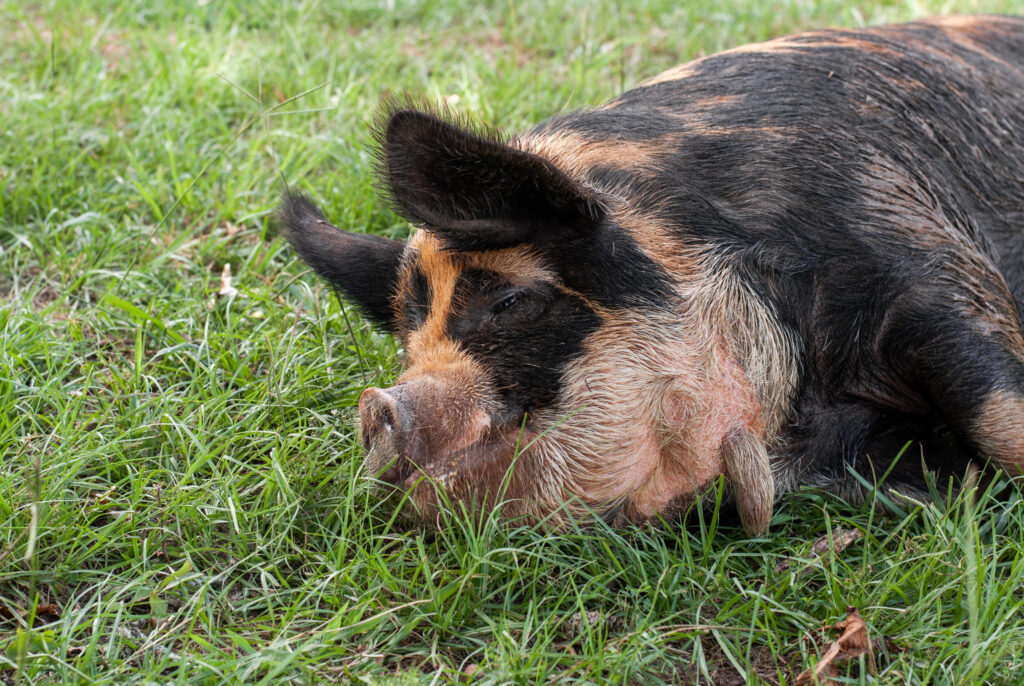
Pigs are some of my favorite farm animals and can be very beneficial to a small homestead like mine. But are pigs easy to take care of?
That’s a complicated question that will depend on how the pigs are being raised. It will also depend on your purpose for them. Given the right environment and know-how-pigs can be very low-maintenance animals. Below are some of the factors you should consider.
Natural Behaviors of Pigs
Pigs have some really interesting natural behaviors. One of the most common things they do is rooting. Rooting is when pigs dig in the dirt with their snouts to find food like roots, insects, and other tasty treats. This is because pigs are natural foragers and love to explore their environment for snacks.
Another behavior you’ll notice is wallowing. Pigs don’t sweat like humans do, so they roll around in mud to cool off. The mud also helps protect their skin from the sun and keeps bugs away. It’s like their own version of sunscreen!
Pigs also like to nest. They will gather straw, leaves, and other materials to create a cozy spot to sleep. This nesting behavior shows how they like to stay comfortable and warm, especially at night or when they’re about to have piglets.
One of the coolest things about pigs is their intelligence. They are very smart animals, able to learn tricks, solve problems, and even play games. Because of this, pigs need a lot of mental stimulation to keep them happy.
Pigs are also very social animals. They enjoy being around other pigs and can get lonely if they’re by themselves. They communicate with each other through grunts and squeals and form strong bonds with their pig friends.
Understanding these behaviors can help you create a better environment for your pigs, making sure they stay happy and healthy.
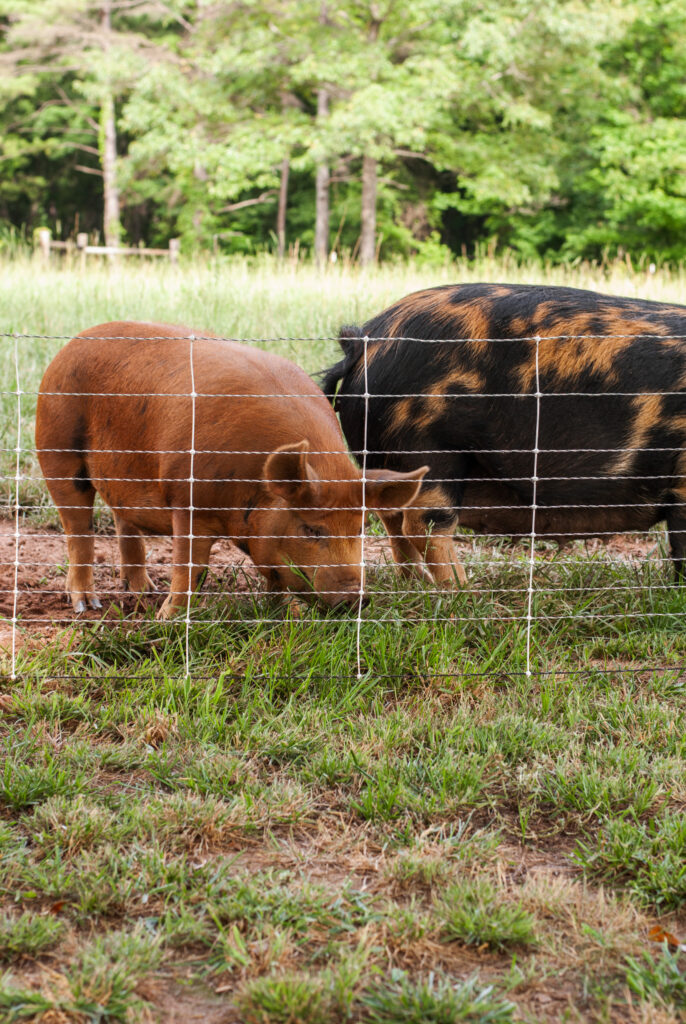
Rooting
Rooting is one of the most important behaviors for pigs. They root to find food like roots and insects, but it’s also a way for them to get important minerals into their diet. Pigs can spend a large part of their day rooting around in the dirt.
If pigs can’t root, it can make them unhappy and even aggressive because they’re missing out on a natural part of their life.
When pigs are kept in enclosures with concrete floors and no access to the outdoors, they can’t root at all. This can lead to serious behavioral problems because they have no way to do what comes naturally to them.
Even if pigs are kept outside, if they are in a small enclosed area, they will quickly tear up the ground by rooting and making a big mess of their enclosure.
One solution is rotational grazing. This means moving pigs to different areas regularly so they don’t completely destroy one spot.
Rotational grazing helps minimize the damage pigs can do to the land and gives them fresh areas to root in. However, this method requires more work because you have to move fences, food, and water stations around frequently.
If you keep pigs in a concrete enclosure, it will need to be cleaned often, which can be a lot of work. Plus, it can negatively impact the pigs’ behavior since they can’t root.
A small, dirty enclosure can become very unsanitary and unhealthy for pigs, requiring a lot of maintenance to keep them clean.
Rotational grazing, while more labor-intensive with all the moving around, can actually make pigs happier and healthier in the long run. It lets them do what they naturally love to do, root around in the dirt while also keeping the environment in better shape.
Wallowing
Wallowing in the mud is super important for pigs. Because pigs can’t sweat like humans, they can get too hot, especially during the summer months.
On hot days, having a mud wallow is a must. When pigs roll around in the mud, the water in the mud evaporates and cools them down. It’s like their natural air conditioner!
Pigs don’t have a lot of hair, so they can easily get sunburned. The mud acts like sunscreen, protecting their skin from sun damage. Plus, wallowing helps keep external parasites like lice and ticks away, which is another bonus.
While wallowing is great for pigs, it can be a problem if their enclosure is too small. If the mud wallow gets mixed with fecal matter, it can become really gross and unsanitary.
Proper care is needed to make sure their wallow stays clean. If it gets dirty, it can cause health problems for the pigs. Keeping the wallow clean is important to make sure it stays a healthy and safe place for your pigs to cool off.
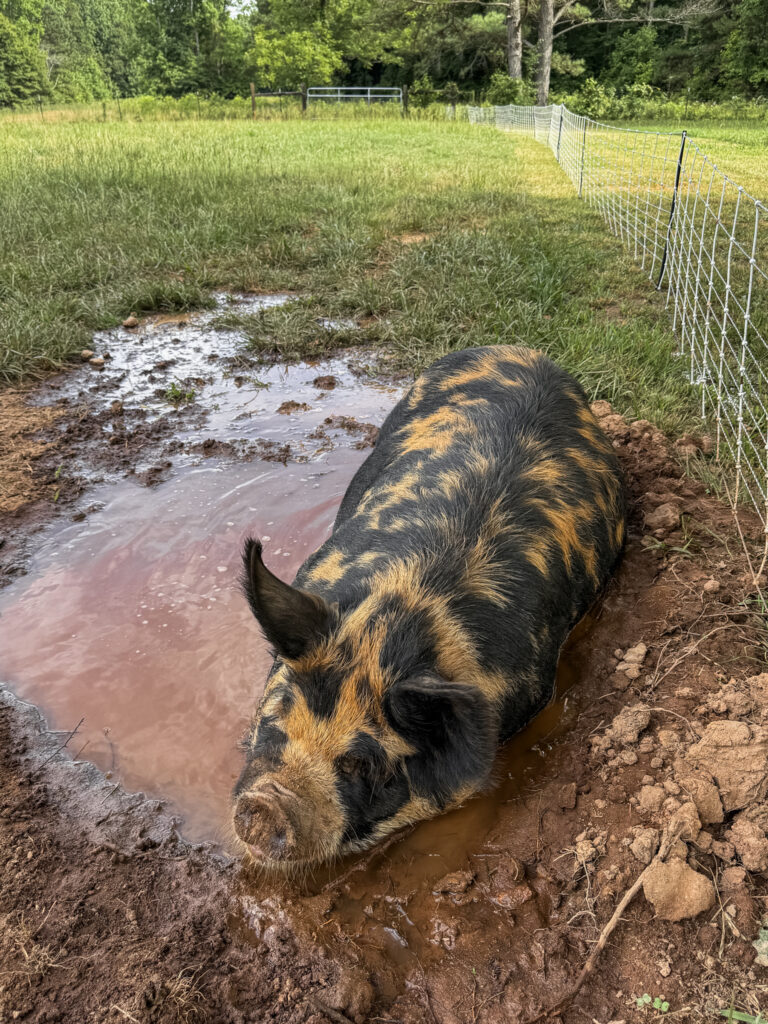
Nesting
Nesting behavior is really important for female pigs, especially when they’re getting ready to have piglets. When a pig is about to farrow (give birth), she has a natural instinct to build a safe environment for her piglets.
This nesting behavior usually ramps up 2-3 days before farrowing. The pig will use things in her environment, like straw, pine shavings, or even branches, to create a cozy nest for her babies.
If a female pig isn’t allowed to exhibit these natural behaviors, it can negatively affect her. She might become stressed or display bad behavior because she can’t follow her instincts. This stress can even affect her overall fertility, making it harder for her to have piglets in the future.
For pigs that are kept on pasture or allowed to free range, this isn’t a problem. They have plenty of space and materials to build their nests.
However, if you’re keeping pigs in a small, enclosed area and plan to farrow them, you might run into issues with their need to nest. In a cramped space, the pig can’t build a proper nest, which can lead to stress and health problems.
Allowing a pig to nest in a more open area is also safer for the piglets. The mother is less likely to accidentally crush them in a spacious nest.
Nesting is also beneficial for the piglets because it helps them maintain their body weight. A well-built nest keeps them warm and comfortable, which is important for their growth.
If you don’t plan on farrowing pigs, then nesting isn’t something you need to worry about. But if you do, giving your female pigs the space and materials they need to nest is part of good behavior management and ensures a healthy start for the piglets.
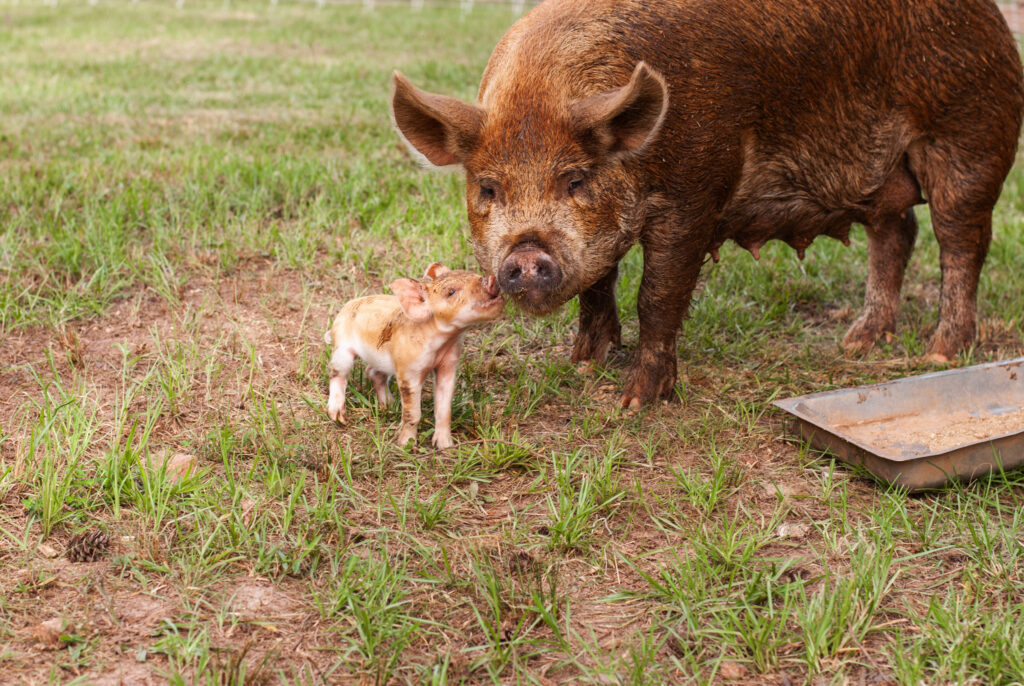
Intelligence
Pigs are really smart animals, and this can make them both fun and challenging to care for. Because they’re such curious animals, pigs can be hard to keep fenced in. They quickly learn to find any breaches in the fencing and will escape if given the chance.
However, an electric fence works great for pasture-raised pigs. They learn to respect it pretty fast and stay within their boundaries.
Pigs are also great at communication. They can communicate a variety of things mainly using sounds, much like dogs do.
Pigs can follow basic commands from humans and even learn to recognize different individuals. This makes it easier to train them using positive reinforcement, like treats and praise.
Their social nature means they communicate a lot with each other too, often using their sense of smell. Pigs can determine another pig’s emotions and fertility by smelling their body odor.
They also use their amazing sense of smell when foraging for food, which can be useful for training pigs in the behaviors you want them to do, like feeding routines.
However, their intelligence and curiosity can complicate things if you can’t keep them easily contained.
They’re such intelligent animals they have even been known to use tools to accomplish something they want to do, like moving objects to reach food.
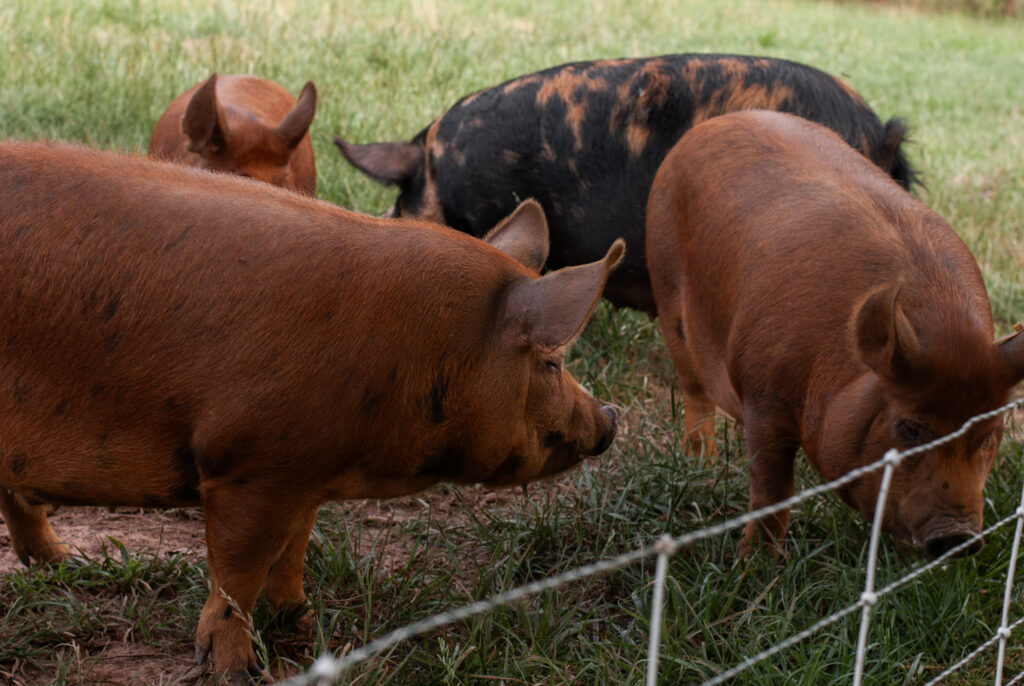
Social Needs
Pigs are highly social animals. In the wild, they mainly live in matriarchal groups with sows (female pigs) and their young. These groups form strong social bonds that last all the way into adulthood.
Pigs enjoy sleeping together in groups and snuggling to keep warm. They get along well with each other, except for breeding males who compete with one another.
Piglets establish dominance early on through play and quickly create a hierarchy within the group. This social interaction is important for their development.
However, if pigs are kept in confinement, they may not get along as well. Keeping pigs in close quarters can change their social dynamics and make it harder to raise them together.
Pigs shouldn’t be kept alone because they need social interaction to stay happy. At the same time, they shouldn’t be kept in small spaces.
They need plenty of room to move around and interact. A good rule of thumb is to provide at least 50 square feet per pig to ensure they have enough space to thrive. Proper social interaction and enough space help keep pigs happy and healthy.
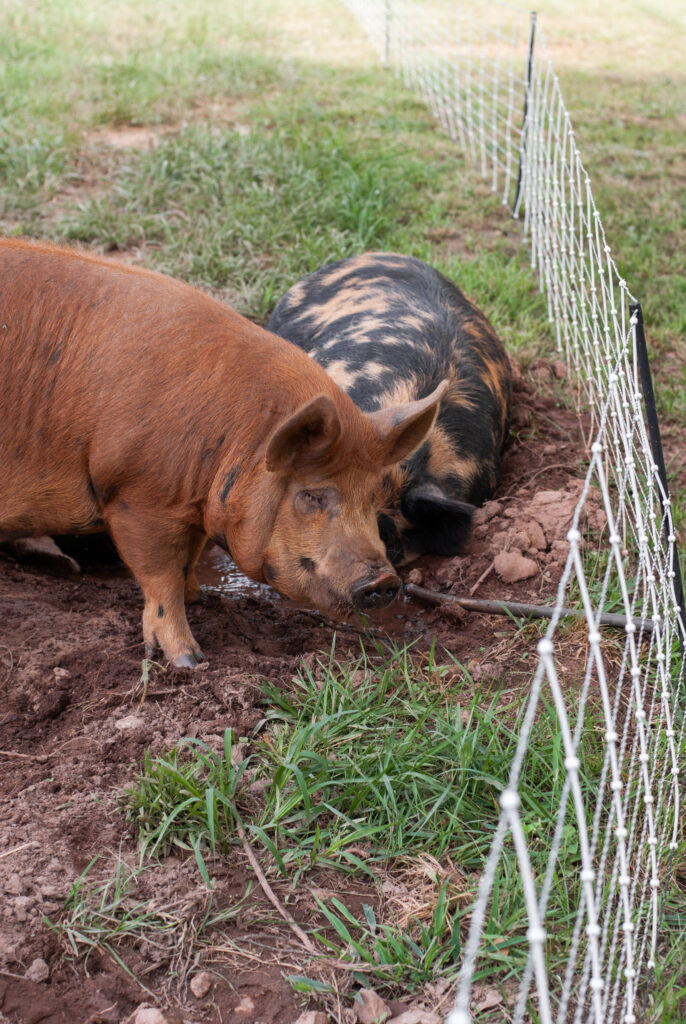
Health Concerns
Pigs, though naturally clean animals, can still face several health problems. One of the important considerations in pig care is their natural cleanliness. Pigs will choose a specific bathroom area in their enclosure, which helps keep their living space tidy.
However, pigs are susceptible to intestinal parasites. Grazing pigs on pasture can help reduce these parasites by decreasing fecal contamination where they graze.
If pigs are kept in a confined area, you’ll need to frequently clean their enclosure to minimize the risk of intestinal parasites.
Pigs are also prone to external parasites like mites and ticks. Regular checks and interventions are necessary to ensure they don’t have these parasites, as they can cause discomfort and health issues.
Another important consideration is Biotin deficiency in pigs. Feeding pigs raw eggs can decrease their Biotin levels dramatically, which can lead to health problems. Biotin is essential for healthy skin and hooves, so it’s important to monitor their diet to ensure they’re getting enough.
Pigs can get various infections and wounds, especially on their feet. Their hooves can become cracked or infected if not properly cared for.
Providing a clean and dry environment helps prevent these issues. Regular checks and appropriate interventions for any cuts, scrapes, or signs of infection are necessary.
Addressing these different types of health problems requires understanding the specific needs of pigs. By providing a clean environment, monitoring their diet, and performing regular health checks, you can help ensure your pigs stay healthy.
General Needs of Pigs
Pigs have several general needs to stay happy and healthy. They need shelter, fresh water, food, and safety. Providing these things is essential and will impact the pigs’ health and how much care they need.
Pigs need a shelter to protect them from the weather. This shelter should be dry and draft-free to keep them comfortable. Fresh water is also a must.
Pigs drink a lot of water, so it’s a good idea to make sure they always have access to clean, fresh water. Without enough water, pigs can get dehydrated and sick.
Food is another important need. Pigs eat a variety of things like grains, vegetables, and specially formulated pig feed. It’s important to feed them a balanced diet to keep them healthy. They also enjoy foraging for food, which keeps them busy and happy.
Safety is key, too. You need to keep their enclosure secure so they don’t escape and get into trouble. Good fencing and an electric fence for pasture-raised pigs can help with this.
The breed of pig will affect how much space they need. For example, Kune Kune pigs need less space compared to other breeds. Knowing the specific needs of the breed you have is important.
Providing all these things means you’ll spend a lot of time caring for your pigs, but it’s worth it. Clean water, good food, and a safe, comfortable environment will keep your pigs healthy and reduce the risk of health problems. The better you meet their needs, the happier and healthier your pigs will be.
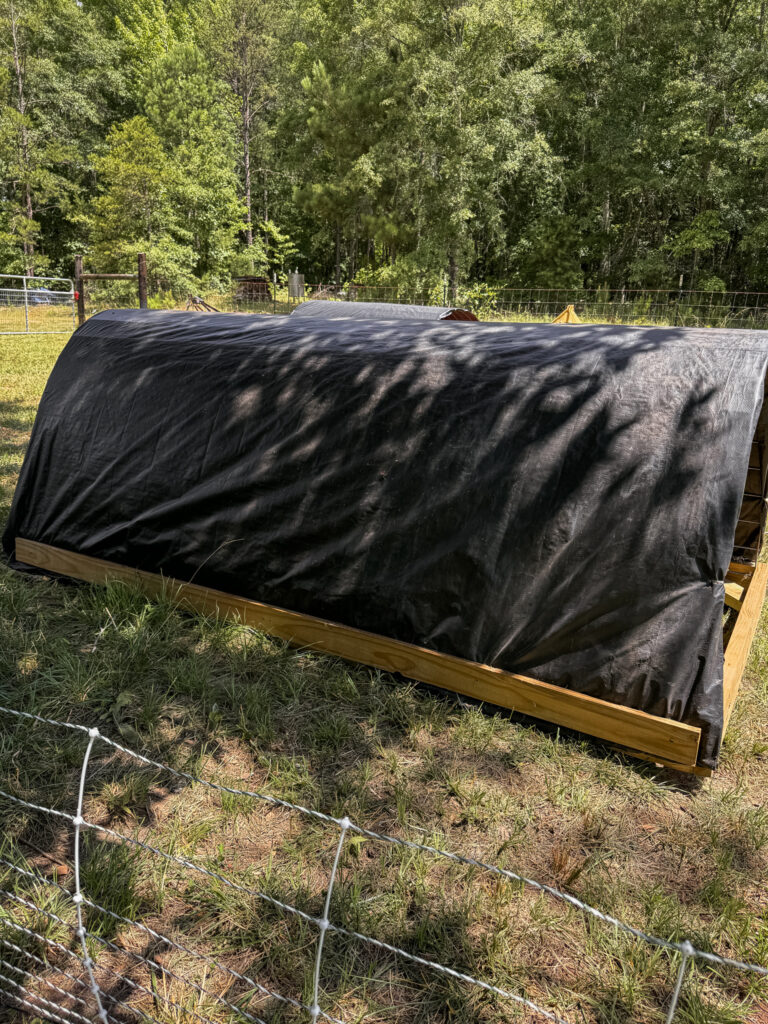
Cost of Feed
Feeding pigs is an important part of taking care of them. On average, a pig needs about 5 to 7 pounds of food each day, or around 4% of its body weight.
So, if you have a pig that weighs 250 pounds, you’re looking at feeding it quite a bit! The cost of feeding your pig can vary a lot.
Depending on what type of feed you choose and how you raise them, the cost can range from $1.50 to $3.00 per pound.
This is just a rough estimate, and many factors can affect the price, such as the quality of feed, where you buy it, and whether you’re buying in bulk. So, when planning to raise pigs, keep in mind that feeding them is a big part of the cost.
Are Pigs Good Pets?
Raising pigs as pets is becoming more popular, and for good reason. Pigs can make great pets because they’re smart, gentle, and social animals.
They can be trained to follow basic commands, use a litter pan, and show a lot of affection towards their owners. They can even be taught tricks, much like dogs!
However, pigs may seem like the perfect pet, but there are some challenges. One major issue is the space they need. Older pigs need a lot of room to move around and be happy.
If you don’t have enough space, they might not get along well or could become stressed. This is especially true for larger breeds, though even smaller breeds like Kunekunes need some space to roam to maintain good health.
Pigs also require a lot of care. They need a clean shelter, fresh water, and a balanced diet. If these needs aren’t met, it can lead to health problems. For instance, if their living area isn’t kept clean, they can get intestinal or external parasites. They also need regular checks for any infections or wounds.
Their temperament can also be a challenge. Pigs are social animals and do best with other pigs around. If they’re kept alone, they can become lonely and unhappy. They can also be a bit stubborn and willful, which might make training a bit tricky at times.
Overall, while pigs can be great companion animals due to their affectionate and intelligent nature, they do come with some challenges. The space requirements and care needed might be more than some people are prepared for.
If you’re ready for the commitment, pigs can be great pets, but it’s important to be aware of what they need to stay healthy and happy.
Are Pigs Easy To Take Care Of? FAQs
Do pigs need a lot of exercise?
Yes, pigs need plenty of exercise to stay healthy. They love to root around in the dirt and explore, so giving them space to roam and play is important. Without enough exercise, they can get bored and even overweight.
How much time do pigs need each day?
Pigs do require a good amount of daily care. You’ll need to feed them, provide fresh water, clean their shelter, and check on their health. It can take a couple of hours each day, especially if you’re providing them with enrichment activities and social interaction.
Are pigs noisy?
Pigs can be quite noisy! They make different sounds to communicate, like grunts, squeals, and oinks. If you live in a quiet neighborhood, their noise might be something to consider.
Can pigs be litter trained?
Pigs can be litter trained to some extent, but it’s not always easy. They have a natural tendency to pick a specific bathroom area, but training them to use litter trays like a dog can be challenging.
Do pigs have specific health issues I should know about?
Yes, pigs can have specific health problems like obesity, joint issues, and skin infections. Regular vet check-ups and dental care are important to catch and treat any health issues early.
How long do pigs live?
Pigs generally live around 12 to 20 years, depending on their breed and overall health. They can be long-term companions, so make sure you’re ready for the commitment.
What kind of shelter do pigs need?
pigs need a dry, draft-free shelter to protect them from the elements. It should be spacious enough for an adult pig to move around comfortably and have bedding to keep them warm like this portable pig shelter.
How often do pigs need to be vaccinated?
Pigs should be vaccinated against common diseases like swine flu, foot and mouth disease, and others. Talk with your vet for a vaccination schedule tailored to your pig’s needs.
Do pigs need special grooming?
Yes, pigs may need grooming, especially if they have long hair. Regular brushing can help with shedding and prevent matting. Also, keep an eye on their hooves, as they may need to be trimmed regularly.
Are there any legal restrictions on keeping pigs?
In some places, there are regulations or zoning laws about keeping pigs, especially in residential areas. Check your local laws to make sure you’re following all the rules before bringing a pig home.
Are Pigs Easy To Take Care of? Final Thoughts
So, are pigs easy to take care of? It really depends on your situation and what you’re ready for. Pigs can be great pets and show good behavior when they’re well cared for. They can be trained to use a litter box to some extent, but they also need a lot of space and daily care.
The popularity of pigs as pets is growing, especially among animal lovers who appreciate their affectionate and intelligent nature.
While small animals like pigs can bring joy, they require more attention and space than you might expect, whether they’re kept indoors or on a farm. If you’re prepared for the commitment and can meet their needs, pigs can make wonderful companions.
If you enjoyed this article on pigs, please share it!
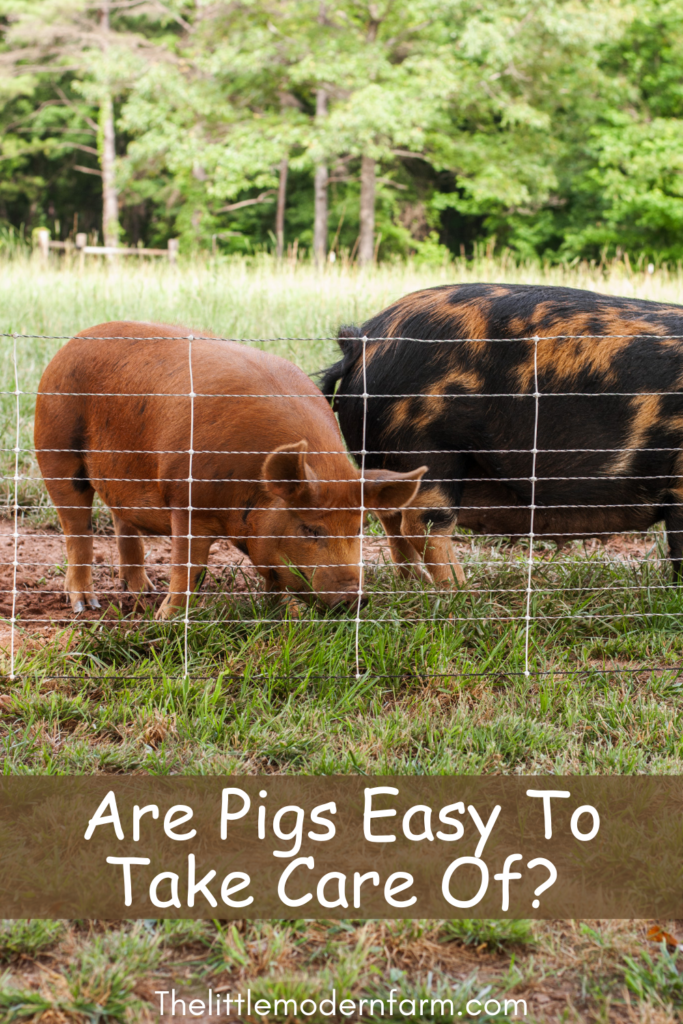
More From The Farm
Can pigs eat corn? It’s a debate that has a lot of differing opinions and views. The simple answer is yes! Pigs love corn, and it’s actually really good for them. Corn gives pigs lots of energy and helps them grow strong and healthy.
Let’s talk about why corn is a great food for pigs in moderation, and how much they should eat.
Leave a Reply